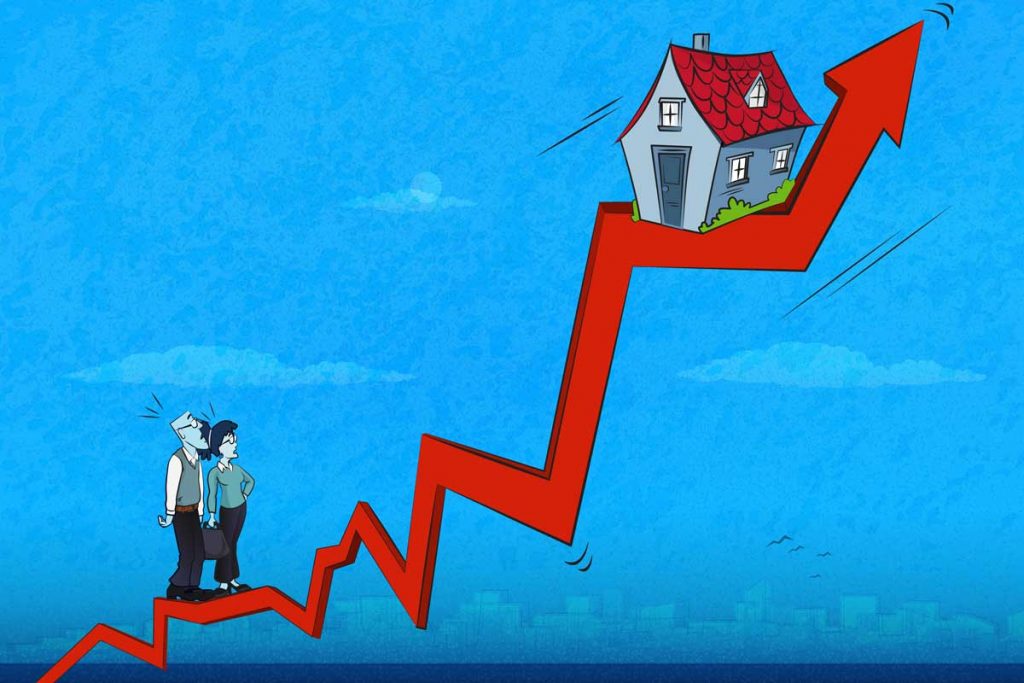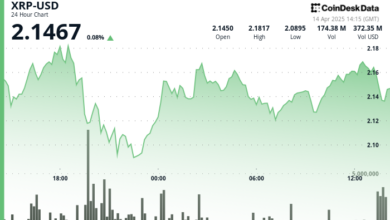4 Things Homebuyers Can Do About Today’s High Mortgage Rates


Just when you thought the housing market couldn’t get any tougher, it throws another obstacle at you.
Mortgages are getting more expensive. Interest rates on mortgages just climbed over 6%, the highest they’ve been in 14 years.
In today’s turbocharged housing market, with its alarmingly high prices, this doesn’t make affording a house any easier. We’ve got four important tips for what you can do about it.
How High Are Mortgage Rates?
Here’s what’s going on with mortgages:
Because of high inflation, the average interest rate on a 30-year mortgage hit 6.02% in mid-September, according to Freddie Mac. That’s more than double compared to this time last year, when it was 2.86%. More than double!
CNN has a good example of what this means in real life:
“A year ago, a buyer who put 20% down on a $390,000 home and financed the rest with a 30-year, fixed-rate mortgage at an average interest rate of 2.86% had a monthly mortgage payment of $1,292.
“Today, a homeowner buying the same-priced house with an average rate of 6.02% would pay $1,875 a month in principal and interest. That’s $583 more each month.”
Yes, $583 more per month!
Here’s What You Can Do About It
Buying a house just keeps getting harder and harder. We’ve got four strategies for how to handle the rise in mortgage rates:
1. Check Online for the Best Rates
While some people may choose to work with a mortgage broker to find the best interest rate available, shopping for rates online is another good option — especially if you have a relatively straightforward financial profile.
Shopping for mortgage rates online is all about taking advantage of multiple resources and comparing your offers before making any decisions.
By entering basic information like your name and credit score into third-party sites like LendingTree or NerdWallet, you can learn what mortgage rates you may qualify for. While you can’t borrow from these sites directly, they can provide an accurate overview of the best home loan offerings available.
Once you’ve found a few interesting offers, it’s time to contact lenders directly. It’s important to follow up with the lender directly to make sure you actually qualify for the rates it initially offered. Some lenders promise fantastic rates upfront, but they don’t follow through once they get a look at your credit score.
2. Save Up a Larger Down Payment
Once you’ve determined how much you can spend on a house, aim to set aside 20% of that price for your down payment. Doing so will earn you better rates and will keep you from having to pay private mortgage insurance, or PMI, an additional charge on top of your mortgage.
PMI is generally required on any home loans when the buyer puts down less than 20%.
It can be tough to save up that big of a down payment. Strive to reduce your expenses and increase your income. We have tips for cutting costs on groceries, car insurance and utilities, as well as advice on side gigs you can get to earn some extra cash.
If you can’t hit 20%, put as much down as you comfortably can.
3. Improve Your Debt-to-Income Ratio
That sounds boring, doesn’t it? It can be important, though.
To get a loan, you need to prove you can pay it back. Lenders want proof that you’re a responsible person who can pay back your debts.
That’s why they’ll check your debt-to-income ratio, or DTI. That’s your monthly debt payments compared to your monthly income. Basically, if you’re already using most of your paycheck to cover other debts, your potential lender may think you won’t have enough left over to pay back the new loan.
Here’s the basic formula for a debt-to-income ratio: your monthly debt obligations divided by your monthly pay.
If you’re trying to get a mortgage, your DTI could play a big factor in deciding whether you’re approved, for how much and at what rate.
4. Boost Your Credit Score
The higher your credit score is, the better deal you’ll get on your mortgage. A good credit score can save you tens of thousands of dollars over the life of a 30-year home loan.
The best way to keep your score up is to pay your bills on time, although that’s not the only factor. If you’re looking to improve your score, try a free credit-monitoring service like Credit Sesame or Credit Karma. You’ll be able to see your credit score, your full credit report and tips on how to manage your credit better.
(They’ll also pitch you credit card offers, which is how they make their money. But avoid opening new lines of credit right now because that might affect your credit score.)
With a couple of strategic decisions, you can improve your credit, saving you thousands.
The Bottom Line
Here’s the thing: Mortgage rates might not be done rising. They might keep going up.
The Federal Reserve is talking about raising interest rates to combat inflation. The Federal Reserve doesn’t set the interest rates that borrowers pay on mortgages directly, but its actions influence them.
So, if you’re thinking about buying a house any time in the next year, keep these tips in mind. And happy house hunting.
Mike Brassfield ([email protected]) is a senior writer at The Penny Hoarder.
Source link





